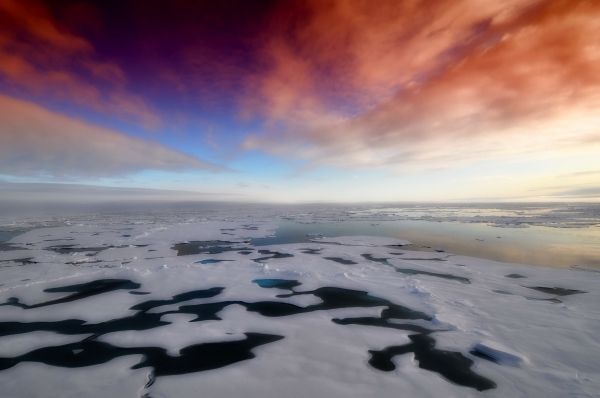Scientists have revealed that the partnership between an alga and bacteria is making the essential element nitrogen newly available in the Arctic Ocean. The microbial process of “nitrogen fixation” converts the element into a form that organisms can use, and was discovered recently in the frigid polar waters. This shift may be a result of climate change and could affect global chemical cycles, according to the study published in the Proceedings of the National Academy of Sciences.
Without a source of nitrogen, phytoplankton in the Arctic have always been limited in the amount of carbon they can take out of the upper ocean and atmosphere. The new source of nitrogen offered by UCYN-A could make Arctic phytoplankton more productive, ultimately decreasing atmospheric carbon levels.
“It was shocking to find this process in the Arctic,” said Deborah Bronk, one of the study’s authors and president and CEO of Bigelow Laboratory for Ocean Sciences. “We thought that nitrogen fixation only occurred in tropical and subtropical waters. This finding may have huge implications for ocean chemical cycles and climate.”
Read more at Bigelow Laboratory for Ocean Sciences


